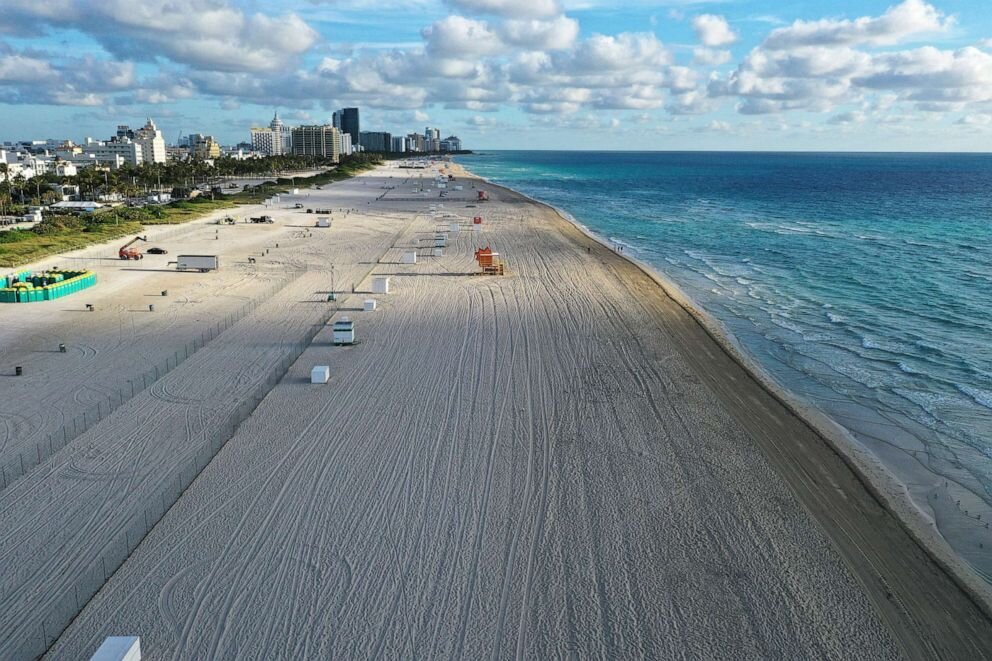How has COVID-19 re-shaped the relationship of our surroundings
Photo by ABC News
There’s no doubt that the coronavirus threw us all a curveball. We’ve seen unprecedented lockdowns and border closures around the world, changing our daily routines drastically. This has not only disrupted sectors like the hospitality and tourism industries, but also how we view our relationship to our surroundings, be it environmental or social.
This blog will look at how COVID-19 has impacted the environment, wildlife, the tourism industry and our habits as well as takeaways that we can apply to life after the coronavirus.
Nature and wildlife are reclaiming their environment
As many of us around the world are confined and socially isolating in the hopes of containing COVID-19, some of Earth’s most precious ecosystems are reacting to the sudden decline of human activity. The planet is essentially taking a break from humans.
In most cities, the streets are empty and unusually quiet, air and sound pollution has decreased and people can actually hear birds chirping for the first time.
Nitrogen dioxide levels are drastically lower than last year, according to satellite images from NASA.
Effects on marine tourism
With national borders closing and international travel on hold, the tourism industry has been the most impacted sector by the coronavirus outbreak. The cruise industry in particular has been put to a complete stop.
What does it mean for the popular destinations?
Cruise passengers have a big impact on a destination’s economy and national GDP as well as the surrounding environment, especially in small island developing states. The first obvious impact is the lack of spending, heavily relied upon by the local economies. Decreases in tourism, even in normal circumstances hit small businesses that rely on tourist dollars to survive. Although, on the other hand, this break gives time for marine life to regenerate without any boating activity, commercial or tourist-related, taking place near their habitats.
You have probably seen already viral pictures of Venice’s canals getting clearer, and dolphins returning back to ports in Sardinia. Italians are finding that their cities and wildlife are returning due to the lack of noise and pollution from tourist boats on canals and cruise boats coming into port.
For the moment, there isn’t any concrete data on the bigger impact this will have, but the lack of boating activity, shuttles, and leisure boats is certainly having a positive environmental effect around the world, from stopping harm to coral reefs to reducing ocean plastic pollution.
However, this effect won’t last long, particularly once the worldwide lockdown is over and we try as fast as possible to go back to our normal way of life. So now is the time to reflect and think about how we can more effectively balance a thriving tourism industry and its impact on the environment.
What can we, as humans, take away from this whole experience?
If you were lucky enough to be able to self-quarantine at home with our family and loved ones for this seemingly indefinite amount of time, you probably have a new level of appreciation for the people around us. We, especially the younger generation, are always chasing new goals, dreams and places to see.
As our lives are slowing down, people are reconnecting with families, discovering new activities with their kids, starting new hobbies and creating their own products out of the desire for innovation. More people are acknowledging the essential presence of small businesses in their region, ready to help and prioritizing local products to support the local economy.
What can you do today while quarantined?
Take the time given during confinement to think, learn and educate yourself and your family on climate change topics. Here are a few things you can do:
Reflect on your impact on wildlife and the environment around you and brainstorm ideas to reduce it and share them with us!
Learn how to make DIY products, such as cleaning products, toothpaste, even grow your own food.
What habits have you changed during quarantine that helps the environment that you can keep on doing? (ideas: use transport more efficiently, avoid food waste, favor local food shops)
Think about your vacation habits and learn more about how it impacts the wildlife/environment/communities that you visit
You’re already thinking of summer holidays: what small changes can you make from previous vacations that can positively impact where you’ll be? (choosing a reusable water bottle, booking a more sustainable accommodation, local food, do a beach clean up on your own or with friends)
How can we take what we’ve learned from all this and apply it to the future?
Don’t forget that the small businesses around you will take longer to recover. Participate in supporting the local economy by shopping, eating, spending in local shops and stores.
Enjoy the outdoors more than ever and respect it! Don’t take going outside for granted, while in lockdown you’ve probably seen the beneficial effects of physical activity more than ever, so keep doing it!
Prioritise slow travel and tourism when you can, there is so much around you that you may never know had existed before.
Don’t forget the community around you, some of them still need you to be in touch in times of need.
Allocate some time for yourself, to keep developing new skills and hobbies that you started.
The global reaction, international cooperation and local solidarity created by the COVID-19 outbreak shows that we can take action quickly and efficiently if necessary, but we tend to only when it directly affects our everyday life. We must also keep in mind that crises like climate change are also real threats that could create the same feeling that many of us are having now and thoughts like “what could have been done to prevent this?”.
Once we are able to contain the virus, the international community must focus on tackling our environmental impacts and their implications as a economical, social, environmental crisis.

